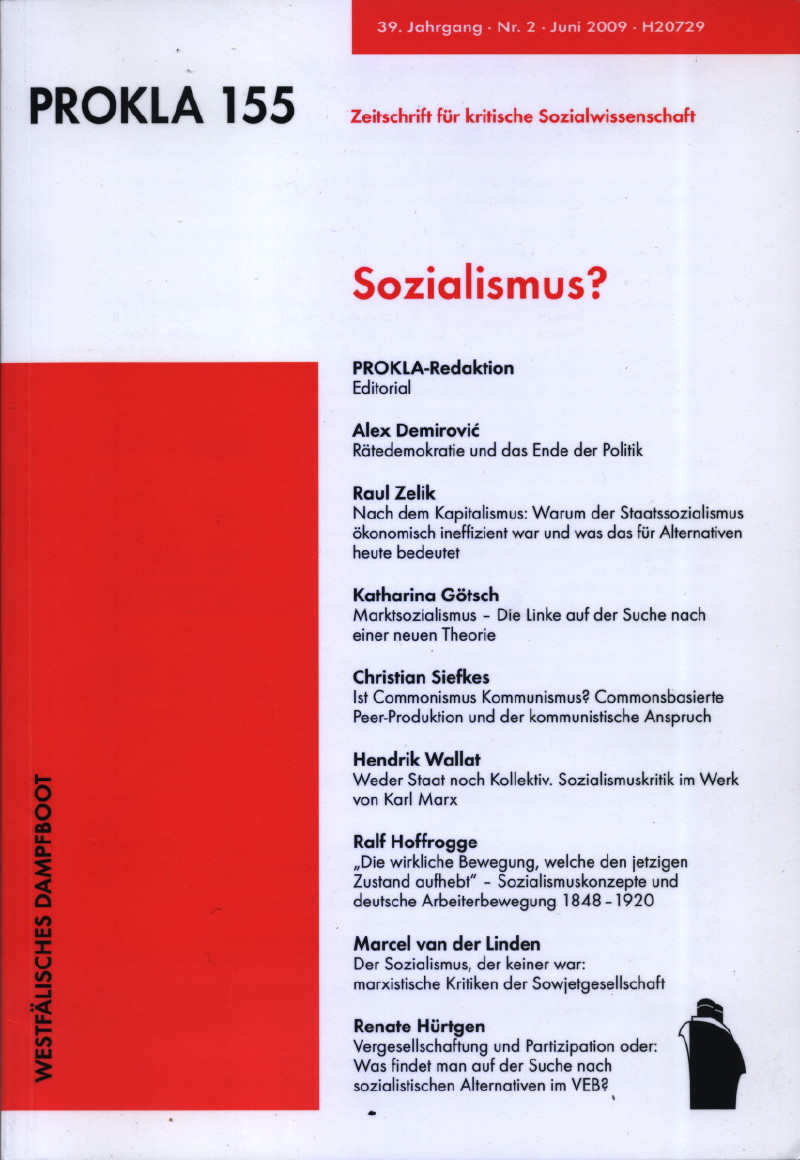Nach dem Kapitalismus: Warum der Staatssozialismus ökonomisch ineffizient war und was das für Alternativen heute bedeutet
DOI:
https://doi.org/10.32387/prokla.v39i155.430Schlagworte:
Staatssozialismus, Sozialismus, Planwirtschaft, CommonsAbstract
In the 20 th centmy, different types of socialist societies failed - not only because of an evident lack of democracy, but also due to their economic inefficiency, Apart from the historical underdevelopment of Russia and other socialist countries, there could be given three main reasons for this inefficiency: 1) Based on the Leninist concepts of party and leadership, the socialist states were characterized by new social contradictions that led the majorities to a kind of silent resistance to central planning, 2) The socialist model of development and modernization didn't offer a real alternative to the economic paradigms in capitalism. Socialist countries turned out to be incomplete copies of fordist societies, 3) The socialist countries didn't find answers to some fundamental systemic problems of planning, as there are: decentralization of decision-making and scope for a self-determined reorganization of working processes,






